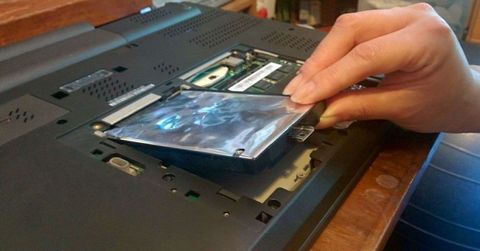

SSD’s or Solid-State drivesare in great demand nowadays this is because they are more reliable and much better in terms of speed and performance. SSD is absolutely better for that, but worth the money? I'd bet not.Different ways to use HDD and SSD both in a laptop But when used externally, it will be very hard to tell. They won't all be doing things at the exact same time, so in most cases it will be a really fast system for them. And give that to fifteen users and that should be pretty decent. Add in cache on the RAID controller and that improves, potentially a lot.

Four 10K drives in RAID 10 will do about the same performance as about six desktop hard drives or nearly ten laptop hard drives. Two spinners might be a little light, but likely not too bad. Thanks! If they are external users, spinners are almost certainly plenty fast.

With all the info you have given me, I think that 2 mechanical drives would be what I will look at now. We will have only 15 users connecting externally, but that is expected to grow. My thought was the the RDS would benefit from it. I realize that AD will not need that at all. But matching drives are a must and SSD is likely overkill, but if affordable is really nice. How many users? Maybe four 10K drives in RAID 10 would work well for you. RDS could benefit from it, but only so much. Why are you looking at SSDs here? AD has zero need for an SSD.

So either get two identical SSDs in RAID 1 or get two traditional spinners in RAID 1. RAID is what prevents dataloss in case one drive fails, and to get that they "need" to be identical. So, unless you can afford two SSDs, just go for two normal HDD drives, you wouldn't see any difference anyway if you used HDD+SSD.Ī second separate disk will still have data loss because you'll have to sync to it from time to time. That's what RAID is for, but as Scott mentioned earlier, better to have identical(ish) drives. But thank you for the input about RAID! my main concern was based on the fact that if an SSD goes down there could be some data loss and down time, I am just looking for solutions to minimize this. I realize that I have miss spoken about the VM with Hyper V. Hyper-V gets no VM, I'm not sure what you are picturing there, but there isn't a Hyper-V function to put anywhere. You'd want one VM for AD and one for RDS. Hyper-V goes directly on the hardware and should never be installed as a role. One is for AD the other will be for hyper v and terminal services. I am going to implement a server at the end of the month.


 0 kommentar(er)
0 kommentar(er)
